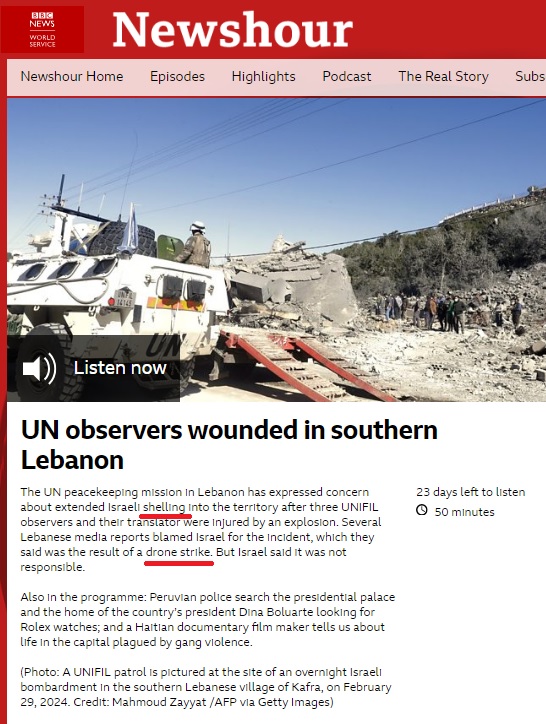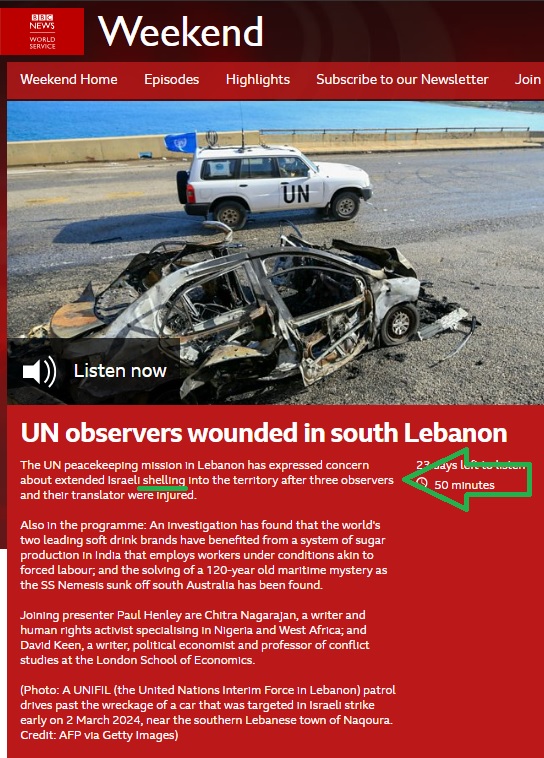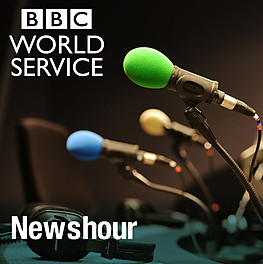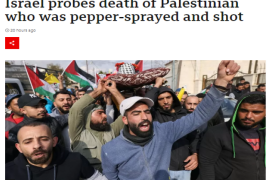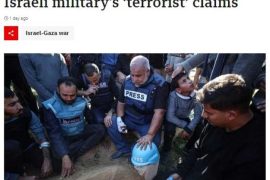On the afternoon of March 30th the BBC News website published a report by Mattea Bubalo headlined “UN observers wounded by shelling in southern Lebanon”, the original version of which noted “additional reporting by Yolande Knell”.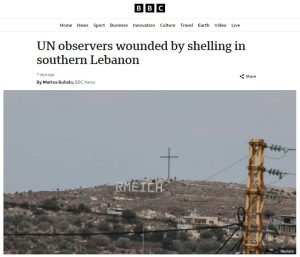
The opening paragraph of that report likewise refers to “shelling”:
“Three United Nations observers and a translator have been wounded by shelling in Rmeish, southern Lebanon, the UN peacekeeping mission said.”
Readers are also later informed that:
“In a statement, Unifil said a shell had exploded near the group who had been on a foot patrol along the UN-demarcated Blue Line that divides southern Lebanon from Israel.
It described the targeting of peacekeepers as “unacceptable”.”
The use of the terms “shelling” and “a shell” of course suggests to readers that the weapon concerned was a projectile with a payload that includes explosives. Contrary to the BBC’s claim, the statement put out by UNIFIL does not include the words “a shell”:
“This morning, three OGL (UNTSO) military observers and one Lebanese language assistant on a foot patrol along the Blue Line were injured when an explosion occurred near their location. They have now been evacuated for medical treatment. OGL (UNTSO) observers support UNIFIL in implementing our mandate.
We are investigating the origin of the explosion”.
The BBC’s report tells readers that:
“Lebanon’s state news agency reported that an Israeli drone strike was behind the explosion, but the Israeli military denied it was responsible.”
And:
“Lebanon’s state run National News Agency said Israeli “enemy drones” raided the area in southern Lebanon where the observers were wounded.
Israel’s military denied this, saying in a statement: “Contrary to the reports, the IDF [Israel Defense Forces] did not strike a Unifil vehicle in the area of Rmeish this morning.””
That report, with its unevidenced allegations of “an Israeli drone strike”, remained on the BBC News website’s Middle East page for four days and is of course still available online.
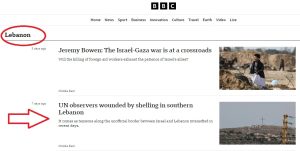
On April 3rd – the day after that report had been taken down from the Middle East page – the Israeli media reported a statement put out by the IDF.
“A group of United Nations peacekeepers wounded in a blast in southern Lebanon’s Rmeish on Saturday that Lebanese officials blamed on Israel were hit by a Hezbollah roadside bomb, the Israeli military said Wednesday.
Shortly after the March 30 incident, the Israel Defense Forces denied carrying out any strikes in the Rmeish area. Hezbollah-linked media and security sources speaking to Reuters had claimed that the IDF carried out a drone strike on a vehicle with four UN employees.
The IDF’s Arabic-language spokesman, Lt. Col. Avichay Adraee, said Wednesday in a post on X that according to the latest information available to the military, the UN peacekeepers were wounded by “an explosive device that had been planted by Hezbollah in the area.””
The Times of Israel also cited an AFP report about a statement from a Lebanese official:
“An ongoing Lebanese army investigation determined that a landmine was the cause of the blast, a judicial official said Wednesday,
“Preliminary results of a Lebanese army investigation have found that the observers were wounded by a landmine,” the Lebanese official told AFP, requesting anonymity as they were not authorized to speak to the media.
The ongoing investigation by the Lebanese army and peacekeepers from the United Nations Interim Force in Lebanon (UNIFIL) had yet to determine who planted the mine, the official added, noting three mines were in the area, “one of which exploded.””
France 24’s report on the story states:
“UNIFIL spokesperson Andrea Tenenti told AFP that preliminary reports showed “the explosion was not caused by direct or indirect fire”.”
The BBC, however, has not produced any follow-up reporting on the story, meaning that its unhelpful and inaccurate ‘he said-she said’ account of what happened near Rmeish on March 30th, together with the disinformation concerning allegations of “a drone strike” and “shelling” (which were also promoted on domestic and international BBC radio stations, for example from 00:10 here, from 01:10 here and from 00:13 here) remain online uncorrected.
